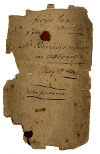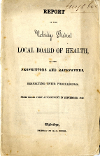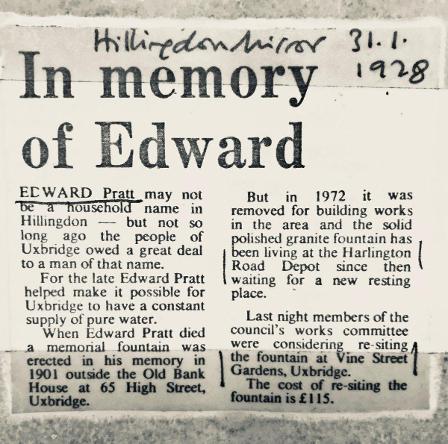Medical officer reports
The Local Studies Archive Collection is home to various records and historical gems from the everyday life of the borough of Hillingdon. The archive collection houses documents left over from the previous district councils prior to the borough being established in 1965 - such as all the annual public health officer reports.

These annual reports were not just for medical practitioners. They helped push for a better system to be undertaken throughout the district. These reports assisted in getting the leaders of the district to give better attention to the living conditions of the district and those that were suffering as a result. They pushed and advocated for better vaccinations, housing, water supply and even cleaner conditions for slaughterhouses.
Clean water

The main supply for water in the area were wells. They were often shallow and the water was rarely clean. The water supply came from the Colne River, a place of industry and not a good supply for clean drinking water.
Edward Pratt

People's health
By the late 1880s the idea of public health started to shift and began to focus a little more on the health of the individual.
The biggest threats to health in the Uxbridge district were mainly respiratory diseases such as bronchitis and whooping cough. The standard of health in 1895 was found to be especially bad in St Margaret's and Bell's Yard. Reports found that out of 100 children born annually, only 70 survived past the age of one.
The advent of the 20th century unfortunately did not leave behind such troubles - in 1901 there was an outbreak of smallpox in London which poured over into Uxbridge. Thanks to an Emergency Smallpox hospital by the Joint Hospital Board the outbreak was maintained and isolated and the district was able to avoid a epidemic. From 1,017 cases noted by medical officers, there were only 247 deaths, largely due to vaccinations that were being carried out in Uxbridge.